Lemon juice
Peeling Back the Lemon Layers
Lemon peels and lemon juice, derived from fresh lemons, are a versatile and widely used ingredient in cooking, beverages, and natural remedies. This guide peels the many facets, from its health benefits to its culinary uses, and provides insights into its nutritional value and storage.
The Benefits of Lemon Juice
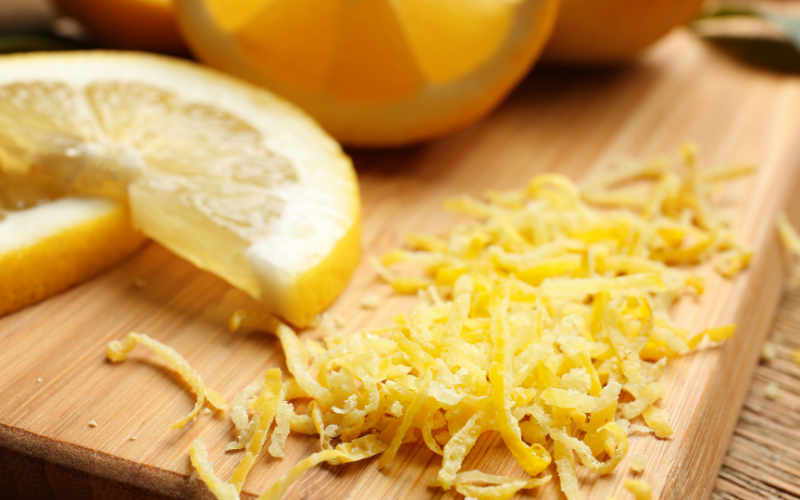
Acidity
Lemon juice boasts high acidity, with a pH level around 2-3. This acidity makes it a powerful preservative and a popular ingredient in various recipes. The acidic nature can enhance flavors, tenderize meats, and even help balance the pH levels in the body when consumed in moderation.
Health Benefits
Lemon juice packs vitamin C, antioxidants, and essential nutrients that support overall health. Regular consumption can boost the immune system, improve skin health, aid digestion, and help in weight management. The antioxidants in lemon peels can also protect cells from damage caused by free radicals.
Electrolytes
Lemon juice contains important electrolytes like potassium, which are essential for maintaining fluid balance, nerve function, and muscle contractions. Adding to water or sports drinks can help replenish electrolytes lost during exercise or illness.
Using Lemon Juice in Cooking and Beverages
Diverse Lemon Recipes
You can use lemon juice in various recipes, from savory dishes to refreshing drinks. Here are a few popular uses:
- Lemonade: Combine fresh lemon juice, water, and a sweetener for a classic, refreshing drink.
- Marinade: Use lemon juice as a base for marinades to tenderize and flavor meats and seafood.
- Quinoa: Add lemon juice to quinoa dishes for a zesty flavor boost.
- Keto: Incorporate lemon juice into keto-friendly recipes to enhance flavor without adding carbs.
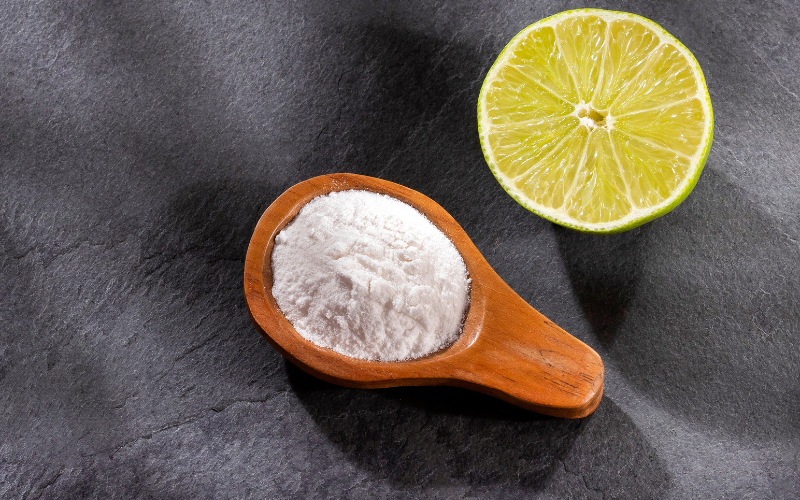
Lemon Juice Concentrate vs. Fresh
Lemon juice concentrate is a convenient alternative to fresh, with a longer shelf-life and consistent flavor. People often use it in cooking, baking, and beverages when fresh lemons are not available.
Lemon Powder
Producers make powder through dehydration, creating a versatile ingredient for use in dry rubs, seasoning mixes, and baking.
Cooking Tips and Substitutes
Juice Squeezer
Using a squeezer can make extracting fresh juice from lemons easier and more efficient. This tool helps maximize juice yield while minimizing effort.
Juice Substitute
In recipes, lemon juice can be substituted with other acidic ingredients like lime juice, vinegar, or citric acid in appropriate quantities.
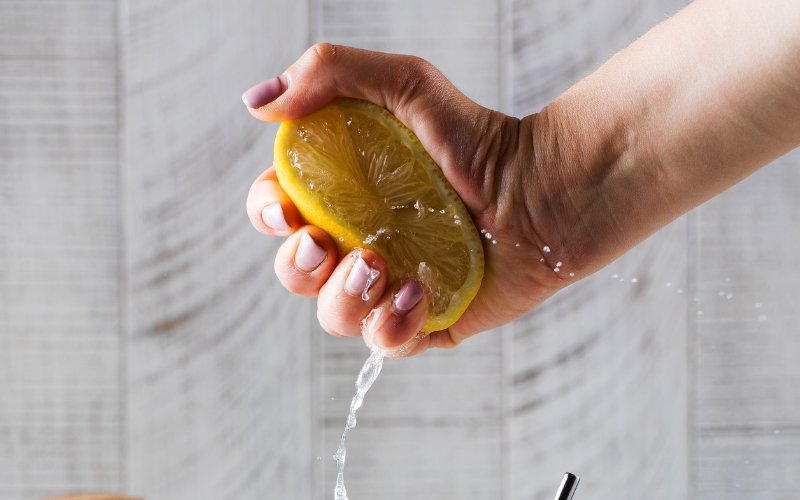
lemon juice Storing and Purchasing
Bulk and Gallon
Purchasing in bulk or by gallon can be cost-effective for frequent use in cooking or for making large batches of lemonade and other beverages. Bulk is available in various forms, including fresh, concentrate, and powder.
Jar and Jug
Lemon juice is commonly sold in jars and jugs, providing convenient options for home use and storage. Ensure the container is tightly sealed to maintain freshness and prevent contamination.
Juice Packets
For on-the-go convenience, packets are a handy option. They are pre-measured and easy to carry, making them perfect for travel, work, or outdoor activities.
Shelf-Life
The shelf-life depends on its form and storage conditions. Fresh juice should be refrigerated and used within a few days, while concentrate and powder have longer shelf lives when stored in a cool, dry place.
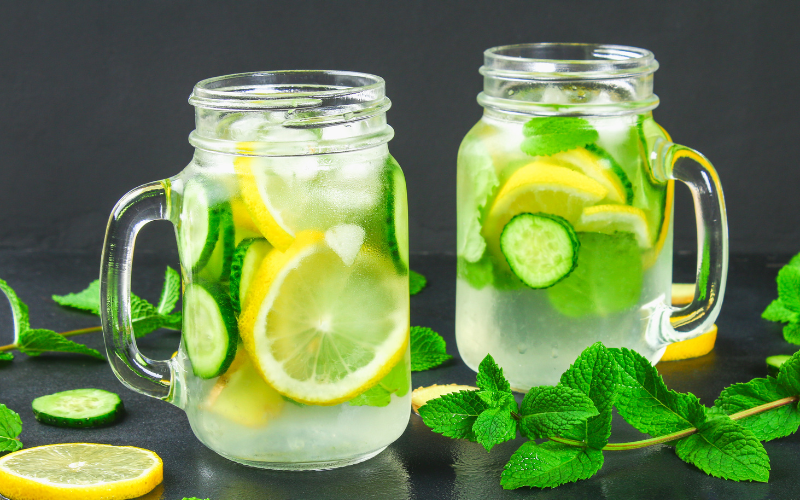
Nutritional Information and Dietary Uses
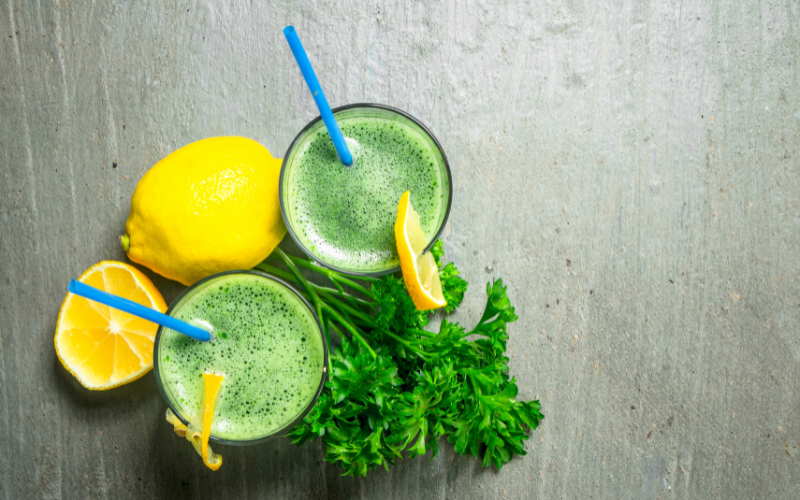
Nutrition and Macros
Low in calories and carbs, lemon’s are a suitable addition to various diets, including keto and low-carb diets. It provides essential vitamins and minerals, such as vitamin C, potassium, and folate, without adding significant calories or sugar.
Cleanse and Diet
Lemon juice is a popular ingredient in detox and cleansing diets, often combined with water, cayenne pepper, and maple syrup in the “Master Cleanse” diet. While these diets can offer short-term benefits, it is essential to approach them with caution and consult a healthcare professional.
Conclusion
Lemon juice is a versatile, nutrient-rich ingredient that offers numerous health benefits and culinary uses. Whether you’re using it for its acidity in cooking, its electrolytes in beverages, or its vitamin C in health remedies, it is a valuable addition to your kitchen. Peel back the various forms of lemons, from fresh to concentrate to powder, and enjoy its refreshing and zesty flavor in your daily life!
Ready to talk?
Are you looking for spec sheets, samples or prices? We would love to chat about how we can help.